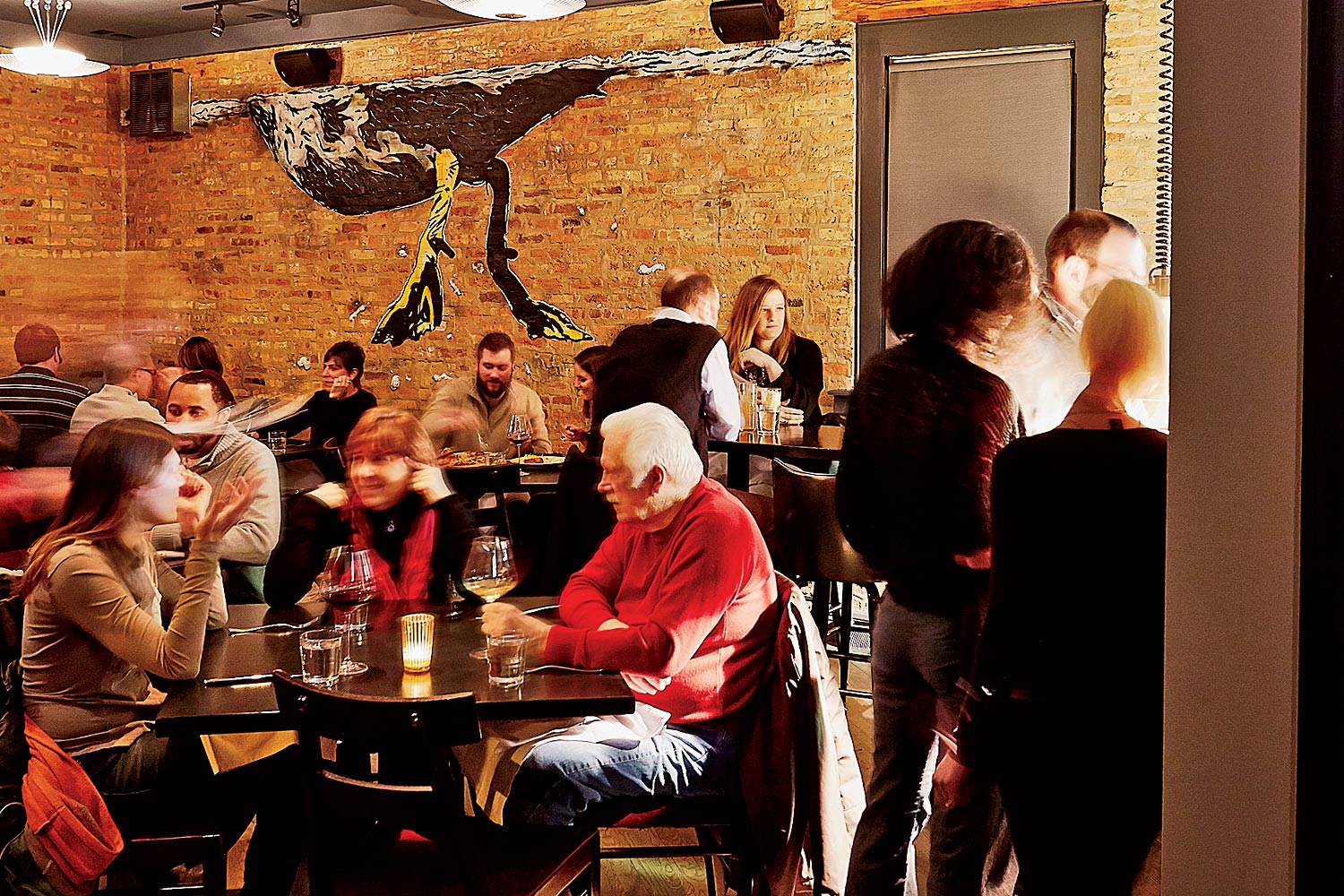Until recently, the litmus test for neighborhood restaurants was always clear: Would you want it on your corner?
But that’s no longer enough. Now we’ve got polished taverns on every block. Farm-to-table and tail-to-snout places where the chef studied with Heston Blumenthal and has an entire chapter of Larousse Gastronomique tattooed on his forearm. Places with $55 tasting menus, craft cocktails by a mustache-twirling mixologist, and 150 beers no one’s ever heard of. How on earth does a neighborhood restaurant distinguish itself anymore?
The answer may lie on a quiet bungalow-lined stretch of Bridgeport. That’s where Michelin-starred chef Kevin Hickey (Four Seasons hotels) grew up, and he returned there to launch the Duck Inn this past winter. Hickey’s “gastrotavern” takes its name from the joint his great-grandmother owned in McKinley Park in the 1930s, but otherwise it proudly goes its own way.
If Hickey wants to serve braised brisket and a giant pappardelle stuffed with ricotta and horseradish on a cold night, he does it. If he’s got a risotto with uni and prawn he thinks you might like, it gets the green light. This sort of freewheeling personal restaurant is a blast of fresh air, and the tie to history proves brilliant—the Duck Inn already feels established. (It’s owned by Billy Dec’s Rockit Ranch Productions, which also runs Rockit Ranch, Sunda, and Bottlefork, three operations very different from the Duck Inn.)
The front room of the former Gem-Bar now features kitschy light fixtures that dangle like glowing golden galaxies, an underlit bar bedecked with trophies, and a long yellow banquette. Cocktailers share nibbles such as mayonnaise-drizzled fried cheese curds with Bloody Mary ketchup or square “hamburger sandwiches” made with Tallgrass beef, topped with grilled onions and melted Brun-uusto cheese, and served on buttered and toasted rye bread. Straight-up food in a homey old lounge for people who never hang out in homey old lounges.
French doors open onto a cozy candlelit dining room so full of warmth and conversation that you barely notice the ducks spinning in the kitchen window. Hickey gives them as much love as an Oregon sports fan. First he removes the breast, which is pan-roasted separately. As for the rest of the duck, he brines it, then he air-dries it, then he slow-roasts it, letting the fat drip onto the Yukon Gold potatoes crisping in the bottom of the rotisserie. He serves it all up on a giant wooden cutting board with a salad of blood oranges, pomegranates, and watermelon radishes. Sounds incredible, but sadly, under the crackly golden skin, the meat on my bird had dried out, and the accompanying tangerine sauce tasted strangely muted.
There’s not much else on the dining room menu, but you’ll find intense pleasures in the potted foie gras, which comes poached, whipped with gelatin, and topped with wine-soaked quince sauce. You spread it on homemade English muffins, the perfect dense yet fluffy receptacles for such riches. Sometimes the kitchen plays it safe, as in a terrific crispy boneless chicken with pickled Brussels sprouts, chicken heart sauce, and butternut squash sauce. And sometimes it goes crazy, as in a gorgeous sunchoke meditation that presents the delicate tuber three ways: pickled, puréed, and as crisps. The unusual choice proves Hickey’s bona fides as a chefs’ chef.
The duck focus flirts with gimmickry. The bird pops up everywhere: paired with foie gras in a tamale, encased in a Chicago-style hot dog, painted in a giant mural on the dining room’s brick wall. Hell, it even figures in a cocktail, the weirdly satisfying Duck Out, a Cognac-and-sherry-based oddity that gets infused with the essence of duck fat drippings. Pretty sure, though, that ducks had nothing to do with the sticky toffee pudding, a wonderful decadence with spiced rum cream.
I adore the earnest servers, who are so comfortable and confident that they make the place feel like a family-run operation. In fact, the chef’s family eats an early dinner at a custom-designed table in the dining room every night. The Duck Inn has got good bones and, if Hickey can get that rotisserie turning with more consistency, a promising future.



